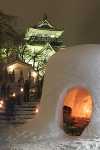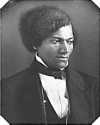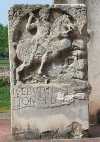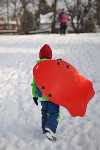 The passage in 1968 of Public Law 90-363, also known as the “Monday Holiday Law,” changed the observance of Washington’s Birthday from February 22 to the third Monday in February. Because it occurs so soon after Lincoln’s Birthday, many states—such as Hawaii, Minnesota, Nebraska, Wisconsin, and Wyoming—combine the two holidays and call it Presidents’ Day or Washington-Lincoln Day. Some regard it as a day to honor all former presidents of the US. Discuss
The passage in 1968 of Public Law 90-363, also known as the “Monday Holiday Law,” changed the observance of Washington’s Birthday from February 22 to the third Monday in February. Because it occurs so soon after Lincoln’s Birthday, many states—such as Hawaii, Minnesota, Nebraska, Wisconsin, and Wyoming—combine the two holidays and call it Presidents’ Day or Washington-Lincoln Day. Some regard it as a day to honor all former presidents of the US. Discuss
Source: The Free Dictionary
 Kamakura Matsuri is held in northern Japan in the
Kamakura Matsuri is held in northern Japan in the  Each year on February 14,
Each year on February 14,  This was an
This was an  Also known as Oglethorpe Day, February 12 commemorates the day in 1733 when
Also known as Oglethorpe Day, February 12 commemorates the day in 1733 when  Few world events during the late 20th century were as pivotal as the
Few world events during the late 20th century were as pivotal as the  This feast is a commemoration in Malta of the shipwreck of
This feast is a commemoration in Malta of the shipwreck of 
 Patterned after the traditional event in Finland that celebrates
Patterned after the traditional event in Finland that celebrates  This zany mid-winter festival celebrates the emergence of the
This zany mid-winter festival celebrates the emergence of the